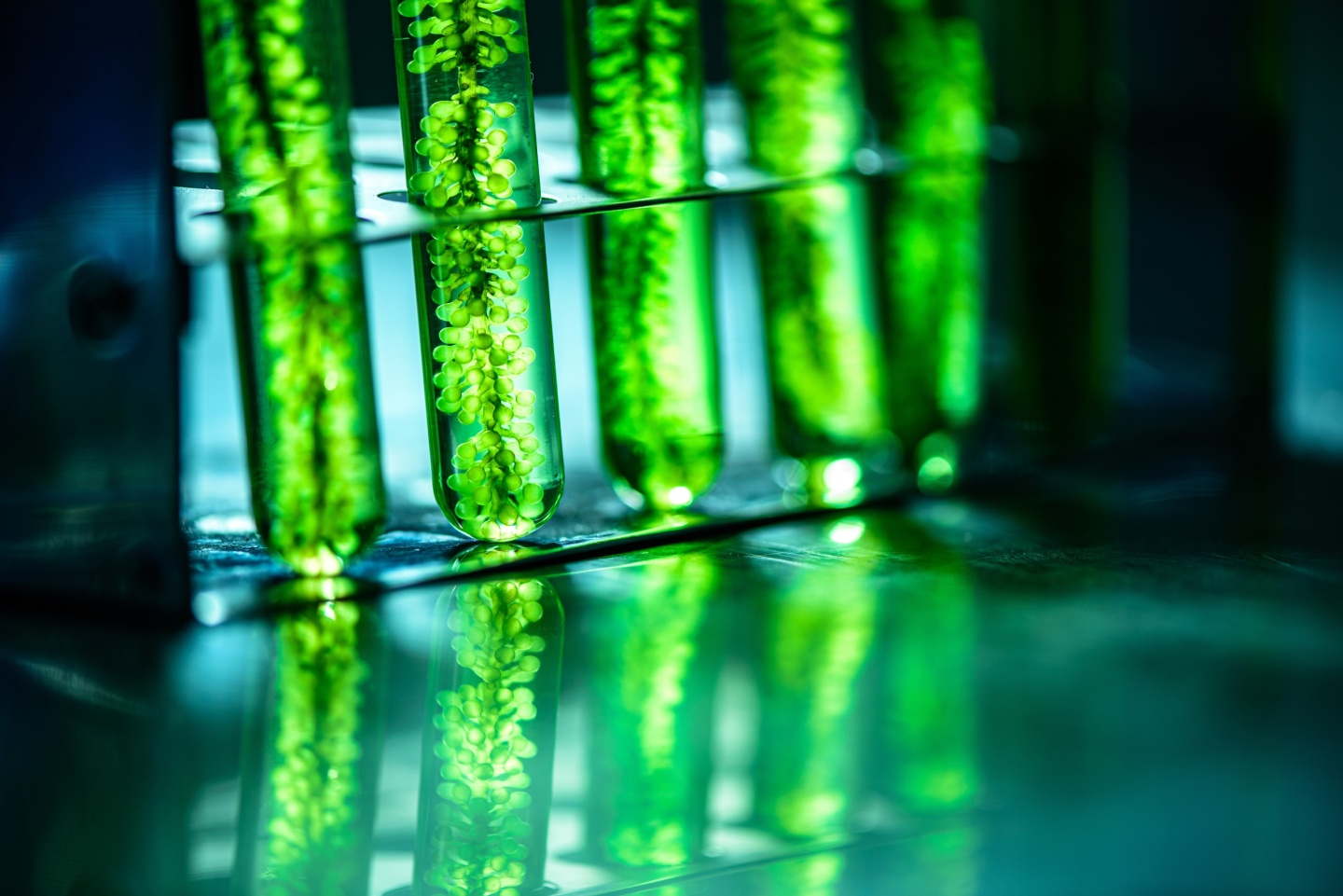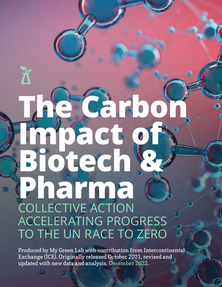

A study by My Green Lab in partnership ICE (which acquired Urgentem) found that more companies than ever in the biotech and pharma industry are adopting zero carbon goals and joining the UN Race to Zero. The study, released at the 2022 United Nations Climate Change Conference, COP27, on November 10th, 2022, shows that 46% of the sector by revenue has committed to the Race to Zero, up from 31% at this time last year. Progress towards the 2030 Breakthrough Outcome, a key measure of progress towards a zero carbon future, has also been swift, with over 53% of companies in the campaign starting a My Green Lab Certification, 23% at a global scale.
About the Study
The report is an update to My Green Lab’s 2021 report, which quantified Scope 1 and 2 as well as Scope 3 emissions across the industry’s entire value chain. The updated report tracks the industry’s progress since 2015 and evaluates alignment with achieving the Paris Climate Agreement. It leverages data from 231 publicly listed companies and 151 privately held companies and compares that profile to other industry sectors.
While the positive trend in commitment to science-based targets is encouraging, the study also highlights the industry’s need for more ambitious targets and increased action. Pharmaceutical and biotechnology companies are significant contributors to climate change, with higher emissions than the forestry and paper industry, widely regarded as one of the most carbon-intensive industries.
The study revealed that 91% of biotech and pharma companies do not have carbon reduction targets aligned with aligned with a 1.5˚C warming scenario, the emission targets that the United Nations Intergovernmental Panel on Climate Change (UNFCCC) estimates will avoid the worst impacts of climate change.
Also revealed in the study is the total carbon impact of public companies in the industry sector, which increased 15% to 227 million tCO2-e, or metric tons of carbon dioxide equivalent. Adding in private companies increases the total another 15%, with the total carbon impact of the industry equaling 260 million tCO2-e.
“While it is encouraging to see the leading companies in the biotech and pharma industry starting to drive year on year reductions – we need to get the entire industry engaged, and we need to rapidly scale up our efforts if the industry is going to be part of the climate solution,” says James Connelly, CEO of My Green Lab. “We need every company in the industry to join the Race to Zero campaign and take rapid, measurable actions to drive down emissions. While progress towards the Breakthrough Outcome goal of 95% of labs achieving My Green Lab Certification is encouraging and a key leading indicator of transformation, we need to move faster,” Connelly continues.
Although the fast-growing global biotech and pharmaceutical industry is a significant contributor to climate change, the industry’s largest companies are demonstrating leadership in emissions reductions. Highlighted in the report is the industry’s move to implement green lab programs, which provide a roadmap of practical opportunities for companies, scientists, and their suppliers to reduce the environmental impact of laboratories.
“Pharmaceutical companies have a pivotal role to play in decarbonizing healthcare. We’re proud to be partnering with My Green Lab, the global standard for laboratory sustainability, to accelerate climate action across our organization,” says Juliette White, Vice-President, Global Safety, Health and Environment (SHE) and Sustainability, AstraZeneca. “Through our science-based Ambition Zero Carbon targets, we are on track to reduce greenhouse gas emissions from our global operations and fleet by 98% by 2026 and have already achieved My Green Lab Certification in over 68 labs worldwide, engaging with over 1,700 scientists,” White continues.
My Green Lab Certification focuses on reducing emissions for Scope 1 and 2 by making laboratory operations more sustainable. It further helps catalyze Scope 3 reductions by encouraging sustainable purchasing within organizations and with laboratories that a company contracts within its supply chain. It was selected as a Race to Zero Breakthrough Outcome to help pharmaceutical and medical tech companies achieve the goal of a zero-carbon world by 2050.
